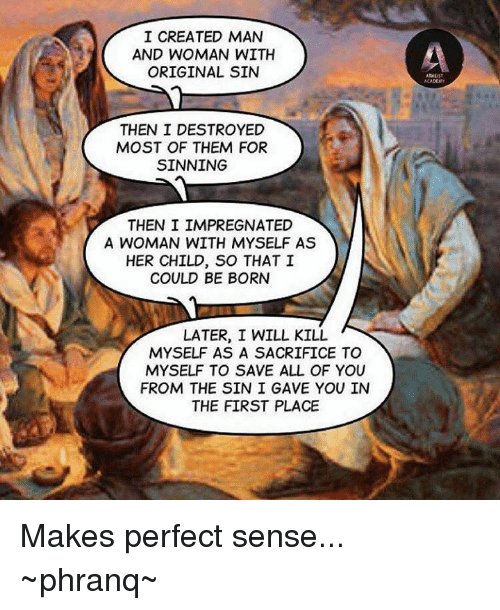@
TwiddlerofThumbs Sorry for the late reply, just woke up a half hour ago and seen your reply, fall asleep after my last one to you, it's about 10:30am where I currently live. Here are a couple of bits of info for you to peruse.
https://www.reddit.com/r/DebateAChristian/comments/44ugf0/the_resurrection_an_elaborate_hoax/czt09bi/
extus Julius Africanus (c. 160 – c. 240) was a Christian traveller and historian of the late 2nd and early 3rd century AD.
Err... ok
This stuff reads more like Gospel than history my friend. I am unable to find the Thallus third book of his History nor Phlegon records.
Without the actual transcripts I find this as reliable as Paul saying there were 500 people who witnessed Christ.
Phlegon doesn't seem contemporary at least.
https://infidels.org/library/modern/jeff_lowder/jury/chap5.html
In He Walked Among Us, McDowell and Wilson argue that Africanus's reference to Thallus provides evidence for the historicity of Jesus because Thallus
does not seek to explain away the existence and crucifixion as a definite historical event, though one which needed a naturalistic explanation for the darkness which covered the earth at the time of the event.[124]
I agree that there is no evidence Thallus ever questioned the historicity of Jesus. Moreover, it is certainly possible that Thallus referred to the crucifixion and even that he did so as an independent witness. But it also possible that Thallus did not mention Jesus' crucifixion or even Jesus himself. Thallus may have written before the crucifixion; Africanus may have simply assumed that the darkness mentioned by Thallus was the darkness associated with Jesus' crucifixion. Since we don't possess any extant copies of the Thallus material, there is simply no way to know if Thallus was a witness to Jesus. Likewise, we don't know what Thallus's sources were. Again, it is certainly possible that Thallus had an independent source for his information, but it is equally possible that Thallus was dependent on Christian sources. Thus, even if Thallus were a witness to the historicity of Jesus, there is no reason to believe he was an independent witness. Therefore, given the present data (or the lack of it, depending on your perspective) Thallus cannot be used to provide independent confirmation of the historicity of Jesus.
Moreover, the darkness itself is doubtful. As Carrier notes:
Such a story has obvious mythic overtones and can easily be doubted. That a solar eclipse should mark the death of a king was common lore among Greeks and other Mediterranean peoples (Herodotus 7.37, Plutarch Pelopidas 31.3 and Aemilius Paulus 17.7-11, Dio Cassius 55.29.3, John Lydus De Ostentis 70.a), and that such events corresponded with earthquakes was also a scientific superstition (Aristotle Meteorology 367.b.2, Pliny Natural History 2.195, Virgil Georgics 2.47.478-80). It was also typical to assimilate eclipses to major historic events, even when they did not originally correspond, or to invent eclipses for this purpose (Préaux claims to have counted 200 examples in extant literature; Boeuffle and Newton have also remarked on this tendency). The gospel stories also make a solar eclipse impossible: the crucifixion passover happened during a full moon, the darkness supposedly lasted three hours, and covered the whole earth. Such an impossible event would not fail to be recorded in the works of Seneca, Pliny, Josephus or other historians, yet it is not mentioned anywhere else outside of Christian rhetoric, so we can entirely dismiss the idea of this being a real event.[125]
Thus McDowell and Wilson, in an attempt to provide independent confirmation of Jesus, are appealing to an alleged astronomical event which itself needs independent confirmation but lacks it![126] But that entails that Africanus's reference to Thallus does not provide independent confirmation of Jesus.
Finally, the passage does not even pass the bibliographical test, one of McDowell's three standards for assessing historical documents. McDowell defines his bibliographical test as follows:
The bibliographical test is an examination of the textual transmission by which documents reach us. In other words, since we do not have the original documents, how reliable are the copies we have in regard to the number of manuscripts (MSS) and the time interval between the original and extant copy?[127]
With McDowell's definition in mind, does Thallus' Histories pass the bibliographical test? Absolutely not! The original manuscripts of Thallus' Histories are not extant and we do not possess any copies of the original. Carrier explains:
The only manuscript copies we have of this Thallus quotation date over 1600 years after the crucifixion itself. And this is not even a tradition of Thallus, but of George Syncellus, who wrote it down from his source over 800 years after Thallus would have written the original according to McDowell, and yet not even that: for Syncellus is copying not from Thallus, but from a late copy of Africanus, who was in turn writing well over 100 years after McDowell proposes that Thallus wrote. There could not be a tradition less reliable or more prone to disastrous errors and corruptions than this![128]
Thus it is utterly impossible to determine the transmission reliability of the passage. The passage fails miserably one of the same tests for historical reliability employed by McDowell to establish the historical reliability of the Bible. The Africanus passage therefore deserves to be discarded.[129]





